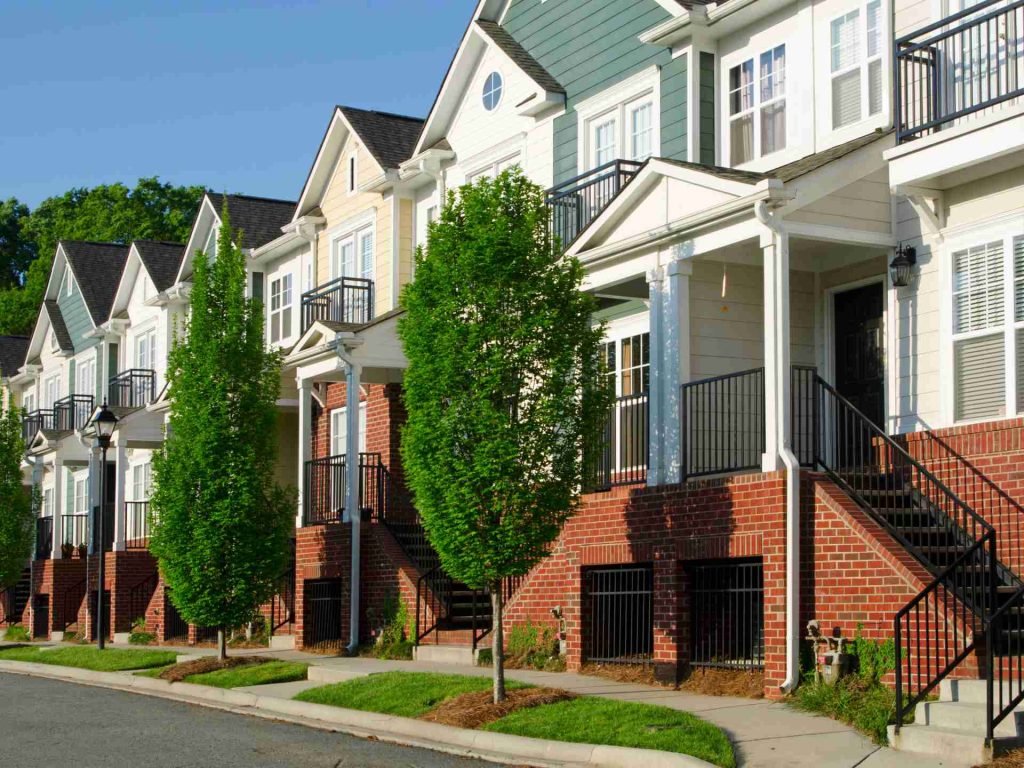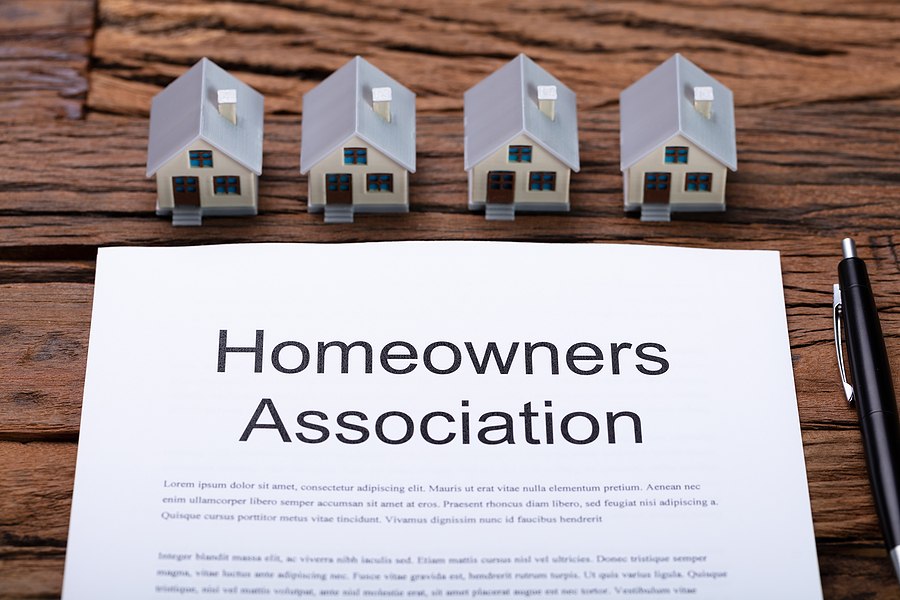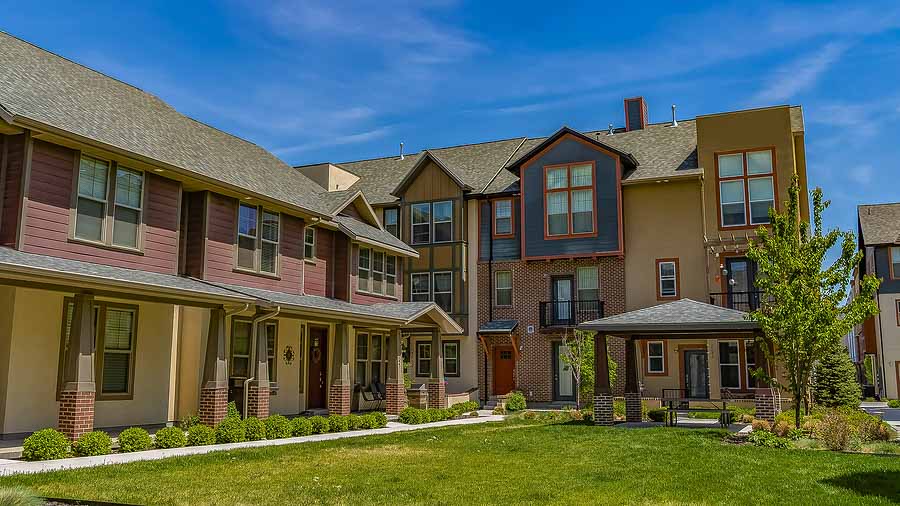Board Training Opportunity – Jan 18, 2023

Sharper Management will present the first in a series of board training opportunities on Wednesday, January 18, 2023, 6 p.m. at the Wells Fargo Plaza, 2nd Floor Training Room at 7900 Xerces Avenue in Bloomington, MN 55431. The 90-minute session will be led by director of business development and education, Josh Reams, CMCA, AMS, PCAM. This session will focus on defining associations and association meetings. Topics include: Association 101 Defining Different Types & Scopes of Associations Types of Association Meetings Understanding Meeting Requirements Tips & Tricks on Effective Board Meetings If you are interested in reserving your spot, please email clientcare@sharpermanagement.com
Overcoming Decision Making Paralysis

There is nothing more frustrating for members, managers, and even homeowners, than a Board that is collectively stuck in the muck, having trouble coming to a decision. It is a condition that is all too common. Perhaps it is a complex construction project, a delicate homeowner situation needing resolution, a complicated budget crisis, or maybe it’s the uncertainty that comes with a vendor change. Many things are thrown at Boards, and frequently it is difficult to get to a point where you are ready for the all-important motion to vote. There are three things that may help you as an individual Board member, and as a collective group. Accept that you will never have 100% satisfaction from all stakeholders. Being on the Board means making tough decisions that are best for the Association as a whole. The sooner you can accept that unanimous acceptance is rare, if not impossible, the sooner you can move on to make the necessary decisions and move forward. Similarly, realize that Board consensus can be difficult to achieve, and accept that it’s okay. Naturally, the more complicated the topic, the more likely you are to have varying opinions. It is good to hash it out by considering all angles, thoroughly researching the issue, consulting experts when needed, etc. – but eventually you’ve got to call the vote. Everyone moves to comfort, clarity, and ultimately commitment at different speeds. If a majority is ready to make a decision, then make that a reality. Have a good facilitator in the group. There is nothing more important to group dynamics than for someone to take on the role of task master. Perhaps it is the President acting as the Chairperson. Sometimes it is the Community Manager, a neutral party, who helps facilitate the meeting along. Whoever it may be, a group needs this person. Their primary skill should be recognizing when a debate is over, or just plain unproductive, and then calling the subject to a vote for resolution. All too often decisions get “tabled” for the next meeting. If it gets “tabled” once, you may as well just move on entirely. You’re probably stuck on the two points mentioned above and will always be there. Consider these remedies if decision-making paralysis is plaguing your Board. Decisions should always be made wisely. A lack of action, or too much indecision, could harm your Board and Association as a result.
New Economic Realities for HOAs

The economic realities today affect homeowner associations in their own unique ways. The first COVID summer of 2020 brought uncertainties and government restrictions that impacted projects and daily life in HOAs. Amenities were closed, pools had protocols, and meetings happened virtually. The summer of 2021 brought material shortages. So, what has 2022 brought to our world of community associations? Gas prices have hit an all-time high and are projected to reach nearly $5 per gallon this summer. Lawn and snow vendors, in particular, are hurting. And check your contracts! Many of them have a clause about gas exceeding a certain dollar amount before a surcharge may apply. Fertilizer prices have also taken a massive price hike this spring. According to the US Department of Agriculture, some of the core ingredient such as nitrogen and ammonia are up 200%. Another thing significantly affecting lawn and snow providers is what we we’ve been hearing about on the news for months – labor shortages. Last winter, the Minnesota Department of Labor estimated private snow removal companies were down 20% in labor force. These issues have started affecting lawn/snow contracts this spring. Some companies cut clients to reduce portfolios and limit non-profitable accounts. Some had significant rate increases at renewal time. Many vendors didn’t even bid new clients to control their capacity. Expect significant increases in your contracts in these areas this fall and next spring. Production of building materials is also showing a COVID-related lingering affect. The US Department of Labor reported last year that 90% of roofing companies indicated they could not work at full capacity because there was a material shortage on shingles—due to the fact that factories were shut down because of COVID in that first summer of 2020. Cause and affect can take time. Material increases and labor shortages are not unique to any particular industry. Asphalt, concrete, roofing, trades, etc. are all fighting the same battles. And what else has changed? Demand for projects is actually up. Early on in the pandemic we were all scared of the economic uncertainties. What we learned is that people are home more, and they want to take better care of the homes they are in. This applies to associations as a whole as well. Improvement projects to associations never slowed—in fact, they increased. All in all, project patience, service quality expectations, material options, and cost realities need to be put into a new economic perspective by HOA Boards.
Board Training-Section I-July 20th

Sharper Management will present the next two-part series of Board Training opportunities on Wednesday, July 20th, 2022, 6 p.m. at the Wells Fargo Plaza, 2nd Floor Training Room at 7900 Xerces Avenue in Bloomington, MN 55431. The 90-minute session will be led by director of business development and education, Josh Reams, CMCA, AMS, PCAM. This session, Section I, will focus on the following topics: Defining Different Types & Scopes of Associations Roles & Responsibilities of the Board Understanding Governing Documents & State Statutes Types of Association Meetings Tips & Tricks on Effective Board Meetings If you are interested in reserving your spot, please email clientcare@sharpermanagement.com Note: Section II on Insurance and Financials will be held on the 19th. Board Orientation for all new clients will be held at the Sharper office on June 22nd.
Spring Walk-Through Time!

For a while, it was hard to believe spring would ever come, but May is here and we’ve hit the ground running. It is, perhaps, the busiest time in property management. Your manager is busy making lists of things to be addressed following the long, cold winter season. The inevitable list of crushed downspouts. There are plenty of pet and plow sod damage letters to be written. Summer project planning starts ramping up. And the spring/summer meeting schedules start filling up. One thing each Association should consider is a spring walk-through of the buildings and grounds. Each Board is different in how they handle it. Here are a few common approaches. Together Some Boards like to walk around together with the manager. More eyes can be a good thing. Additionally, it is nice to review things together to gain consensus on projects and how to prioritize tasks. The difficultly with this approach, however, can be finding a respectful understanding with your Community Manager. Scheduling can be difficult—remember that managers are already working evenings for Board meetings and emergencies. Managers have a checklist and a methodology they follow, and the distractions of homeowners coming out to say “Hi” and the unavoidable “say, while I have you here…,” can make for an extremely long and cumbersome inspection. Board Board members only. Sometimes it is helpful without the manager, who sees the property on a frequent basis and is always looking for maintenance items. As managers, we can be guilty of developing tunnel vision. If a Board is going to take this approach, it can be helpful to divvy things up. For large and expansive communities, print a site map and assign areas. Or, if you’re doing it together, assign components. Someone looks at landscaping, another Board member inspects the concrete, etc. Manager Sometimes the Board doesn’t want to be involved and will leave it up to the manager. There is something to be said for this approach. A manager is not biased, and he/she is trained for this activity and has tools and templates to make it an effective and efficient inspection. Expert Another approach to truly getting a fresh look and a professional perspective is to bring in an expert. If you’re looking at a specific issue, take roofs for example, many roofing companies may offer to do a free or low-cost inspection. Documentation may be the most important component of a thorough spring inspection. If you’re doing it as a Board, utilize a spreadsheet with columns of important items to check (windows, landscaping, etc). Be sure to take pictures. They can be incredibly valuable for rule violations, warranty claims, contractor negligence, repair bidding, and more. If the site visit is left to the manager or an expert, you can be assured they have their methodology for documentation. Whatever route you take, spring inspections are incredibly important to document winter issues, and to prepare, prioritize, and position the community for a great summer season. Happy spring walking!
Sharper Scramble Golf Tournament – July 29th

Sharper Scramble Golf Tournament – July 29th Mark your calendar for the 6th Annual Sharper Scramble Golf Tournament, to be held Friday, July 29th at Boulder Pointe Golf Club in Elko. This FREE day of food, fun, fellowship, and golf is Sharper’s way of showing our appreciation to you – our valued client – to our Sharper staff and to our trusted vendors. Registration begins at 10 a.m. Shotgun start to the scramble/best ball format golf round starts at 11 a.m. Dinner and an awards banquet to follow the round. If you are interested in securing your spot for the Sharper Scramble, we recommend you do so soon. Space is limited and tends to fill up fast! To register, email clientcare@sharpermanagement.com
Audit & Tax Season

Did you know that Community Associations, as registered non-profit corporations in the eye of the State of Minnesota, are required to file Federal and State taxes? It is also important to be aware of any requirements of your governing documents for an annual financial review or audit. If you are governed under MCIOA (Minnesota Common Interest Ownership Act), you are required to have, at minimum, an annual financial review. These two components – audits/review and taxes – are done simultaneously. Financial reviews and audits do differ; however, they achieve the same goal. That is to have an independent, licensed CPA review the Association’s financials and the accounting practices of its management company. Your property manager and staff at Sharper are working hard behind the scenes to provide the engaged CPA firm with all of the materials required. Bank statements, reports, invoices, etc. all must be provided. Be ready for your manager to ask for the Treasurer’s signature on tax docs. And lastly, know that it is very common for the CPA to file tax extensions, as reviews/audits are an involved process and can take time.
Evolving Lender Requirements Affect HOAs

In reaction to the tragic collapse of the Champlain Towers South condo building in Surfside, FL last summer, there have been significant changes to mortgage lender requirements with loans backed/purchased by Fannie Mae and Freddie Mac. A large portion of mortgage loans (estimated at nearly 50%) are typically purchased by Fannie or Freddie, so mortgage lenders will be diligent to ensure during their underwriting process that these requirements are satisfied. These requirements are purportedly “temporary,” but requirements for Fannie backed loans went into effective January 1st, while Freddie backed loans go into effect February 29th. The concerns brought on by the events in Florida are three-pronged: significant deferred maintenance, perceived or realized “unsafe conditions,” and the Association’s overall financial health. Who Does This Affect? Any Association legally recognized as a “condominium” or a “cooperative” with more than five units. The word “condominium” is important, as there are Associations that may be perceived as a “townhome;” however, they might be legally defined as a “condominium.” The word does not just apply to what one might envision as a high- or low-rise building. Check your Declarations and Articles of Incorporation for this definition and classification of your Association. What Are the New Requirements? Maintenance – The primary crux of this is an Association cannot have “deferred maintenance.” This is generally a difficult thing to define and may be difficult to prove the subjective adequacy of “maintenance.” One way to do so is to have an active Preventative Maintenance Plan in accordance with the Minnesota Common Interest Ownership Act (“MCIOA” or 515b) requirements passed in 2019. Reserve Study & Fund – Another way to illustrate proactive maintenance is to have a formal “reserve study” done, and then following the recommendations laid out in that study. Fannie and Freddie both require that 10% of operating budget goes to Reserves. (note: Fannie waives this requirement if a reserve study is in place and up to date). Details on Loans & Assessments – Fannie and Freddie will both require significant detail to be provided on Special Assessments or Association loans. Six months’ worth of Meeting Minutes may be requested, and specific details may be required in the resale disclosure and review process. Addendum to Resale Questioners – Fannie and Freddie both released the joint “Condominium Project Questionnaire” and a new Addendum to gather information required under the new lender requirements. As part of the resale disclosure process, this new Addendum asks specific questions of the association such as: When was the building last inspected by a licensed architect, engineer, or building inspector? Did the last inspection have any findings related to safety, soundness, structural integrity, etc.? Is there a Reserve Study and has it been updated in the past three years? Current or planned Special Assessments? What Should the Association Do Now? It would be wise for effected Associations to seek a legal opinion to review the above-mentioned areas of requirements for compliance. An “opinion letter” on file would be a helpful tool. In addition, a pre-filled-out Addendum would be helpful to have at the ready for when a resale disclosure package is requested. As the busy summer selling season gets into swing, there will be detailed requests coming in from buyers and sellers as it relates to these new requirements. It is best to get on top of it as soon as possible so the Association is ready. Finally, unless your Governing Documents state otherwise (which is extremely rare), it is important to remember that these are not requirements of the Association. These are new requirements of Fannie Mae and Freddie Mac. Associations generally have no obligation to confirm that there is no deferred maintenance, no unsafe conditions, no planned special assessments, or to verify that it is fiscally sound. However, the risk of liability should be weighed against buyers and sellers who could make claims that the Association was a deterrent to a resale transaction because financing fell through on account of Freddie/Fannie requirements. Nevertheless, it would be a wise decision for any legally defined “Condominium Association” to consult with their attorney for a legal review.
Property Walk-Throughs

Summer is a great time to do a walk-through of your properties—the weather is nice, and the green landscape allows you to clearly see what needs work or improvement. When doing a walk-through, pay attention to the following parts of the landscape: Shrubs—do they need trimming? Are they uniform? Grass—is there an irrigation system in place to keep it green? Plants—are they looking healthy or are they dying? Is there too much of them? Flowers—are there various bright colors around the property, or do you need more? Bed spaces—are there empty pockets around the property that can be filled? We suggest including your contractor on these property walks so they can create a plan to service your property and work with you on your budget. Property walk-throughs are also good for noting what is working well and what needs work. You may have a great system in place that just needs a bit of updating since your property is always going through changes. If you’re unsure of where to start, your landscaping contractor will have plenty of suggestions on how to get your property looking great. They’ll also know what species of plants can survive and bloom in the spring after a harsh Minnesota winter. Don’t put in the time and money for flowers and plants that won’t make it through the snowy season! Now is the time to schedule a walk-through with board members and your landscaping contractor before the cooler months come.
Operations and Personal Protection Continue During COVID

As the pandemic continues, most people have adjusted to the “new normal” that is affecting everyone in the community association industry, the associations, and the owners. While we may be exhausted by the restrictions and repercussions of the coronavirus, we need to remain cognizant of actions needed to prevent the spread. There are several areas that associations should continue to monitor: CDC Guidance: Provided by the CDC, there is specific guidance for “shared or congregate housing,” which includes condominiums and other multi-family buildings. This information is comprehensive and includes many guidelines to maintain safe operations, acknowledging community associations’ unique needs and challenges. Declaration, bylaw, rules, and regulations: While there may not be specific COVID-19 related provisions, these documents provide insight on what general terms could impact or govern steps taken to respond to these issues. Social gatherings: Social gatherings should be continually evaluated, especially those seeking to occur indoors. Recommendations and restrictions are fluid, and it is important to stay abreast of these changes. Outdoor events are typically easier to implement, however with cold weather, indoor facility use may be more common. Construction projects: Continue to appropriately manage access to buildings by vendors. Create and maintain appropriate protocols, emphasizing the steps these vendors will take to ensure proper cleanliness and sanitization while working. Usage of amenities: There is ample information regarding access to amenities such as pools, fitness centers, etc. within associations. As this is an ongoing, fluid situation, it is important to create a schedule to evaluate these aspects. Adjustments should be continually made based on the latest data and guidance available. CDC Fact Sheet: Communication is critical to avoiding issues or misunderstandings in operations. Posting the updated/current CDC guidelines or fact sheet in buildings ensures that owners and others entering the building are aware of the standards and protocols in place. There is an overwhelming amount of information and suggestions for safety guidelines out there but keeping up to date on the aspects above is a good foundation. Balancing safety issues with common sense and community spirit is the best remedy available to us during this time.
